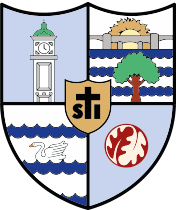English
At St Ignatius, the study of English supports our mission of 'Achieving our best by learning together and serving one another with Christ by our side'. Through reading, writing, speaking and listening, we nurture both emotional strength and academic excellence- the two values that underpin all of our learning.
Writing
At St Ignatius, we believe every child is a writer. Our vision is for all pupils to develop the skills, knowledge, and confidence to write with clarity, fluency, and purpose. Through exposure to rich, high-quality texts and explicit teaching of grammar, punctuation, and syntax, children learn to craft writing that is engaging, accurate, and meaningful.
We want our pupils to see writing as a tool for thinking, creating, and communicating — producing high-quality pieces that reflect their growing independence, creativity, and voice. By the time they leave us, every child will be able to write with confidence and control across a range of contexts, fully prepared for the next step on their journey as readers, writers, and learners.
Writing is taught through a carefully sequenced curriculum that builds expertise step by step and is integrated with our reading provision. In Reception and Year 1, children follow the Talk for Writing process, combining oral rehearsal with story mapping, innovation, and shared writing to build a strong foundation in composition and sentence construction. From Year 2 onwards, pupils move into more formal writing using the Grammarsaurus' PVPG approach, which explicitly teaches the place value of punctuation and grammar, including syntax, nouns, verbs, and sentence structures. This approach is revisited at the start of every academic year, ensuring that key concepts are consolidated and that children build secure, layered knowledge as they progress through the school. Lessons make deliberate links between reading and writing, analysing rich model texts to unpick authorial choices and inspire purposeful writing. Using the follow-on units from Grammarsaurus, writing follows an iterative process—planning, drafting, revising, and editing—with teachers modelling and scaffolding at every stage to build independence. Retrieval practice ensures learning is secure, and purposeful opportunities to write across the curriculum, in subjects such as history, geography, and science, provide authentic contexts for writing. Exemplary pieces from each term are edited, published, and added to each pupil’s Anthology of Excellence, creating a personal record of growth that follows them throughout their time at St Ignatius.
This structured, progressive approach ensures that pupils develop as fluent, confident writers who understand how to craft meaning and adapt their writing for different audiences and purposes. By securing strong transcription foundations early and systematically revisiting sentence-level knowledge, pupils write with increasing sophistication and creativity. Their wide and deep reading informs their own writing, resulting in rich vocabulary, varied sentence structures, and thoughtful authorial choices across all genres.
The Anthology of Excellence provides a tangible record of each child’s writing journey, showcasing technical progression alongside the development of individual voice and confidence. Writing outcomes demonstrate clear progression across year groups and across the curriculum, with pupils confidently applying their writing skills in meaningful and authentic contexts. Pupil voice reflects a genuine pride in their work and a clear understanding of the writing process, including planning, drafting, revising, and editing. Consistent assessment and responsive teaching ensure that every child, including those with additional needs, makes strong progress. By the time they leave St Ignatius, pupils are articulate, reflective, and capable writers, ready for the demands of secondary school and the wider world.
Reading
At St Ignatius, reading is at the heart of our curriculum. We follow a carefully planned Reading Curriculum Map that sets out the books and texts children study each term.
Children enjoy a daily diet of reading in school, including independent reading, shared stories and listening to books read aloud. We also ask that pupils read at home each evening and record this in their reading records, which should be brought to school daily.
In Reception, children begin with fully decodable books from the Little Wandle phonics programme. As they progress, they move through the Big Cat Collins scheme until they reach Level 18 and become Free Readers, choosing their own books from the library or home.
Each classroom has a well-stocked library with books suited to children’s reading levels and linked to their topics. In Key Stage 2, every class also enjoys a Book Club text read aloud by the teacher to model expressive reading and promote reading for pleasure.
From Year 2, children follow the Comprehension Crusher scheme by Grammarsaurus, which develops vocabulary, fluency and comprehension through modelling, guided reading and independent practice. This approach helps every child grow in skill, confidence and enjoyment as a reader. Teaching is inclusive and adaptive, supporting every child to achieve and enjoy success in reading.
Curriculum Documents
National Programme of Study for English (Key Stages 1 & 2)
Other links –
